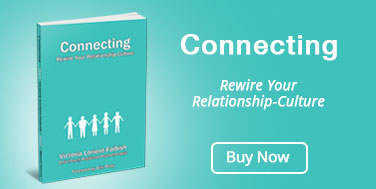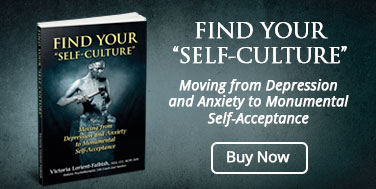What draws us toward friends is usually a mystical chemistry that is brought on by mutual likes and dislikes, history, commonality of energy, and a dash of simpatico dust for good measure. There is usually a wonderfully long honeymoon period among friends that lasts until the first conflict at which point the navigation process begins in which both parties will learn quickly how the other handles conflict. Is it healthy or not? Does one person amputate and stop talking all together? Does passive-aggressiveness ensue in which sarcasm and jabs become the mainstay to the dialogue? Do the two just ignore the problem all together which will surely become a future explosion? No matter what the situation, it is clear that friendships can be messy, disappointing and filled with challenge. It is also true that we need a sense of friendship and belonging in our life in order to have balance. Life is more expansive with friends than without. But we need to have a system that works in order to travel through friendships in a healthy way.
Ask these questions of yourself: Are your expectations appropriate? Or are you having expectations from a friend that you should not? The reality is that to not ask these questions is to be disappointed often by your friends. Which category are you placing your friends in? Let me explain: there’s an A category, a B category, and a C category. Depending on what is happening in that friendship is where you ought to place that friend. You want to be very mindful about what category you are putting your friends in.
Category A: These are the very closest of friends. The most intimate of people. If you have one or two in this category then you should consider yourself lucky. These are people you trust with your life. They have earned this spot because of tried and tested times together. They have never betrayed you and vice versa. You feel safe revealing deep confidences to this person because they have shown themselves to be able to keep your intimate information private. They also respect you and you respect them. There is non judgement of each other. You are entirely safe with one another to be real and authentic. There is a deep mutuality of love. There is no toxicity in this category and with that come certain expectations—realistic ones, of course—but they are certainly higher expectations than in any other category. They are expectations based on life events in that your “A” people will be present or participating in these important life events that you go through. If you fall ill these are the people you call upon. If a tragedy or a milestone happens they are there.
Category B: These would be close people but not as close to you as your “A” people. You probably have more “B” people in your life. They are friends, but not as intimate. You enjoy socializing with them. There are exchanges of intimacy but you somehow feel that you need to be a bit more cautious with them. These folks are people that you adore but you may have detected some issues that make them less trust worthy. You need to notice what people are showing you and you need to believe them! Do not put them indiscriminately into the A category just because you have had close times together. You cannot have the same expectations of your B people as your A people especially if you detect problems occasionally e.g. they let you down sometimes, they are often late, they are fun to socialize with but can be self involved and narcissistic, they’re not true to their word or they betray confidences at times. If the foible of the “B” person keeps happening repeatedly then you need to downgrade them to the next category.
Category C: These are our glorious acquaintances. There are so many of these in most of our lives. These are co-workers, downgraded B people, friends of friends etc. The expectations of “C” people are very low. You see them occasionally. You are happy to see them but you are not going out of your way to connect. These are the folks that when they ask you “How are you?” You answer “Fine” no matter what you are really feeling. You are not revealing the authentic you. You are showing the social you.
Category D: These are simply obligation people that you need to be social with. Your boss, your spouse’s family that you don’t particularly like or the various shop keepers etc. that you may run into or need to do business with through your day. Your expectations in this category are zero.
This form of categorizing your network is very helpful for defining what kinds of expectations you ought to have of your community. Amputation of any given person is reserved only for the very abusive. The reality is that if you begin to amputate everyone in your life because they disappoint you, then you are going to live like an island later and your life will get smaller and smaller as you get older. Unless there’s abuse, I don’t think amputation is an answer. But relegating that person to another category in which you adjust your expectations accordingly is another very valuable way to go; it is a less dramatic answer. It’s not amputation; it’s putting them in the proper category. You need to assess, take inventory of your friendships, and see where you want to put them.
Also a key to navigating all relationships is the concept that “we teach people how to treat us”. Clients come in and they feel mistreated, victimized, berated, and belittled, by a variety of people in their lives. They feel they are passed up for promotions, constantly being borrowed from, with money that isn’t paid back or books that aren’t returned. They feel taken advantage of and disrespected. It’s a tough situation to be in a relationship with that kind of person, but you need to study yourself and this relationship and see where you have essentially taught them, trained them, that it is OK to step on your toes, invade your boundaries or not treat you with respect.
This is a common theme. If you are in a relationship in which you feel taken advantage of, belittled or invaded, you need to take responsibility that you have somehow, through your actions or non actions trained them into treating you in this way. You are not the victim. Take back your power. Take back your sense of strength and self-loyalty and assert your boundaries. Tell people what is OK and what is not OK. Advise people in a gentle, kind and loving way, that it is not OK to treat you that way. If people are doing that and you’re not calling them on it, you need to investigate your own failure to stand up and tell them where you’re at. As you read this, feel empowered and brave enough to teach your friends and family, and coworkers and bosses how to treat you. You have that right.









Interesting article. I’ve always had a challenge of where to place my friends within a particular category. I’ve lost friends, good ones because I’ve placed them in categories that they should have not been placed in. I was selfish in my own ways not to notice this. For now on, I will keep this in mind when I deal with relationship with people.